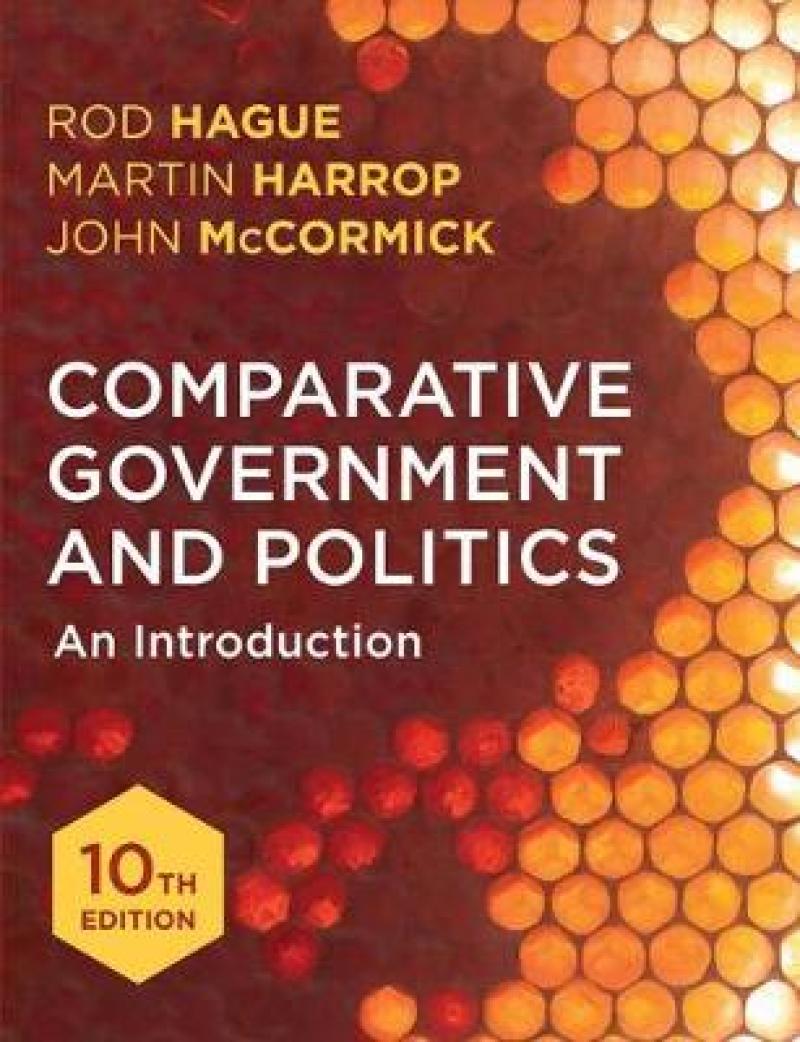'This latest edition lives up to the high expectations created by its predecessors and remains top of the list for comprehensiveness and accessibility. The discussion of theories, concepts, and typologies is well supported by cases and examples of recent political developments.' - Rudy Andweg, Leiden University, the Netherlands. "Once again (and now with John McCormick on board) this classic introductory comparative politics text manages to stay relevant, accessible and contemporary. It remains the key text for students new to comparative politics, mixing theoretical clarity with expert country case studies throughout." - Mark Bennister, Canterbury Christchurch University, UK "This is one of, if not the, most comprehensive introductory comparative textbook(s) currently on the market, and this new edition retains all of the strongest features of previous editions." - James Allan, Wittenberg University, USA
John McCormick joins Rod Hague and Martin Harrop as co-author for the 10th edition of this renowned and bestselling textbook. Taking a thematic approach to Comparative Politics, it introduces students to the key concepts, structures and arguments that will enable them to successfully compare political systems across the globe. Taking full account of the different institutions of government and political cultures that exist around the world, the authors offer detailed analysis of a range of democracies and authoritarian regimes. In addition, an array of carefully-designed pedagogical features equip students with the tools and critical mind-set to explore debates and spark discussion.
With its impressively comprehensive coverage, the book can be used as the sole text for teaching undergraduate courses worldwide on Comparative Politics, Comparative Government, Introduction to Politics and Introduction to Political Science.
Preface.- 1. Key Concepts.- 2. The State.- 3. Democratic Rule.- 4. Authoritarian Rule.- 5. Theoretical Approaches.- 6. Comparing Government and Politics.- 7. Constitutions and Court.- 8. Legislatures.- 9. Executives.- 10. Bureaucracies.- 11. Sub-national Government.- 12. Political Culture.- 13. Political Participation.- 14. Political Communication.- 15. Political Parties.- 16. Elections.- 17. Voters.- 18. Interest Groups.- 19. Public Policy
